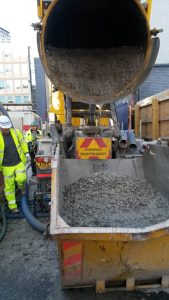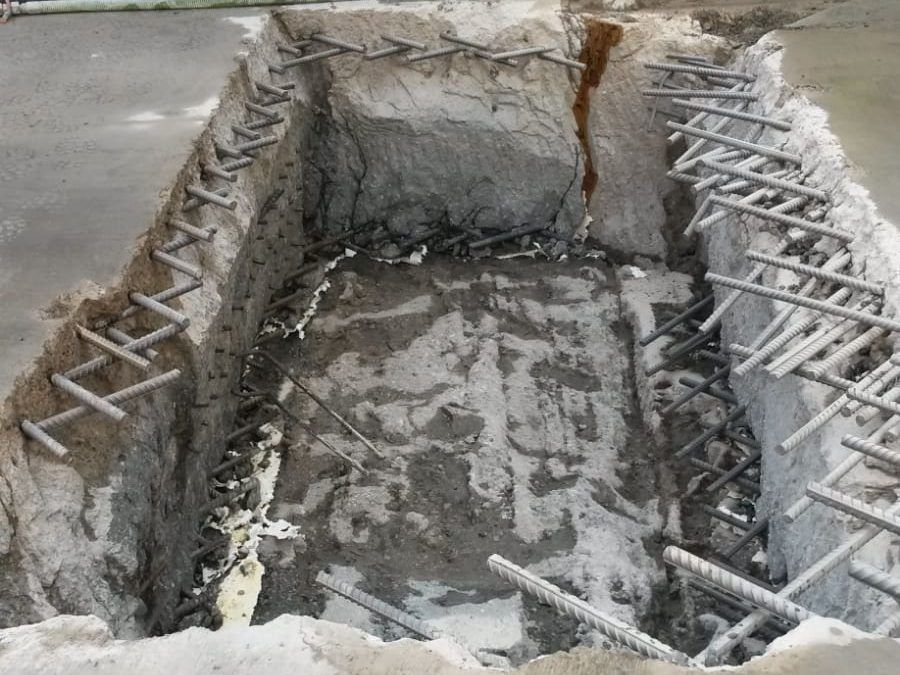It’s been a busy few months for our water jetting teams here at Hydroblast – even more so than usual. We’ve been busy working on a vast range of jobs, one of which was a large hydrodemolition job that we recently completed in Sheffield.
The task at hand involved a large amount of concrete removal to aid the building work of a new high-rise block in Sheffield. Construction of the adjacent block had begun some 13 years ago, with the project starting pre-recession. However, work was stopped due to a lack of funding and the recession, and it hasn’t been until now that work has properly begun again.
The Hydroblast Method
Our job was to find the original rebars that had been put into place in order for our client to tie the new high-rise block in with the existing basement. To do this, we had to remove concrete that was 1.25m deep, with our operatives working two floors down to complete the task in the basement. We had to break out 5 pits, measuring 5m x 2.5m x 1.25m deep – some 15.6m3 per pit. Overall, around 70-80m3 of concrete needed to be removed.
To carry out the work, our Aquajet HVD Robot was lifted and lowered into the basement using the client’s tower crane. The Robot used, and was connected to, our 1000 bar power pack delivering 260 litres/minute. Whilst the Robot sat on the floor of the basement in order to gain the great depth, extension cannons were attached. The Robot was able to start work each morning and not stop until the end of the shift each day. The break out was 10x more than what had previously been achieved by others, and of course much safer.
Because of the extensive amount of concrete that was being removed, we knew that waste water and waste concrete would be considerable. Based on our knowledge and expertise in such situations, we suggested to our client that a vacuum truck be used to suck all of the waste out.
A company from Scotland supplied us with a powerful, high tip vacuum tanker that was able to ‘hoover’ up the waste concrete and water continually, to allow the work to continue. The vac tanker was able to constantly discharge the waste water into our water treatment plant.
Using this technology, we were able to successfully vacuum out both waste water and concrete and put the waste water through our water treatment plant to neutralise the pH of the water. The reason for this is to allow for the water to be safely returned to the environment, as alkaline water full of debris would be damaging. Meanwhile, our vacuum truck was able to continually suck out the waste. Once stopped at the end of each day, we were able to tip the waste concrete into skips. There was so much concrete that we were filling up a skip every two days.
The Outcome
It took 20 days to break the concrete out and our client was delighted with the service we gave after having previously been let down by the original hydrodemolition contractor they had engaged for the job. The previous contractor owned none of his own plant, instead hiring everything. He was also unable to back up the service that the client asked for.
At Hydroblast we own and operate all of our own plant. We invest all profits into new equipment and technology and it means that we can remain at the forefront of the latest equipment for hydrodemolition.
During the time Hydroblast worked on the site they were subject to a random Health and Safety Visit. Hydroblast passed with flying colours – a testament to our outstanding staff and excellent equipment.


